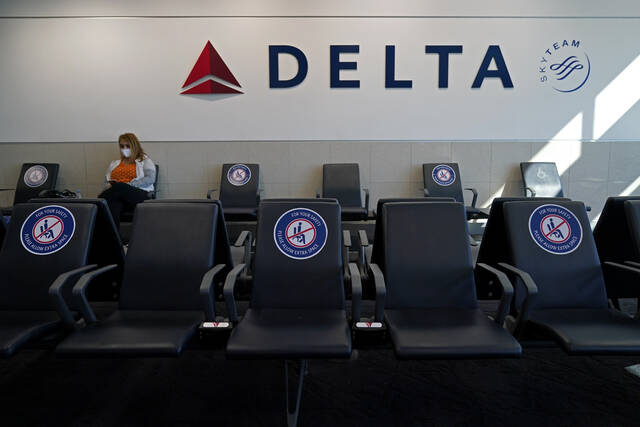https://naviga.triblive.com/opinion/sheldon-h-jacobson-supreme-court-ruling-on-face-masks-is-irrelevant/
Sheldon H. Jacobson: Supreme Court ruling on face masks is irrelevant

The Supreme Court ruling that the Transportation Security Administration (TSA) can require masks on airplanes, trains and buses will be welcomed by some and scorned by others. Will the Biden administration act on this ruling and reinstate transportation mask mandates, given the current surge in covid-19, influenza and RSV infections in the coming months?
A mandate of this type is unenforceable, which means it is dead on arrival. Indeed, masks are not the problem; a mandate is.
From the public health perspective, masks reduce the transmission of airborne infectious diseases. They do not eliminate such risks, which is why some people who are mask- adherent may still get infected. This risk reduction benefit occurs when the masks are of high quality (like N95 respirators) and that they are worn correctly.
The TSA is incapable of enforcing a mask mandate at airports. Their primary responsibility is on security checkpoints and protecting the air system from nefarious activities. Adding a public health responsibility that they are neither trained nor skilled to address is a formula for failure. Such a distraction can even compromise the very security that they are charged to provide, given the distraction that face mask mandate enforcement would add to their already full plate of airport activities.
We are just entering influenza season, with new cases beginning to pick up. Covid-19 community transmission also continues to be high across the country. The respiratory syncytial virus (RSV) spread is on an uptick, particularly amongst infants. With three viruses circulating simultaneously, anyone who wishes to reduce their risk of infection of any type is wise to take every precaution available, including wearing a mask, independent of any mandate.
Data collected suggest that around one-third of people still are wearing masks at airports. Given that such actions are voluntary, these people are wearing better-quality masks and wearing them correctly. Reinstituting a mask mandate would add more people wearing masks but who will be less adherent. This means they likely will wear poorer-quality masks and not wear them appropriately. The net effect of this would be little additional public health benefits.
Airlines were not pleased with the mask mandate. Air rage spiked during the mandate, as those unwilling to wear masks acted out, and those adherent to the mandate attempted to enforce it. This created an unnecessary tension between air travelers that flight attendants and crew were forced to adjudicate, often in real time during flights. The needless chaos that ensued led to unwelcome delays and anxiety for all.
Given all this, the Biden administration would be wise to not reinstate a mask mandate on airplanes and in the transportation system. It would draw additional negative attention to an administration that is struggling to regain public support and will need to contend with a Republican-controlled House to pass any legislation.
What continues to be woefully inadequate is communicating the benefits of all tools for reducing the spread of infectious diseases, whether they be covid-19, seasonal influenza or RSV. Some of this is driven by how communication during the covid-19 pandemic began and the residual effect of such poor messaging. It also reflects a deeply wounded and decapitated CDC.
Making a mask mandate legal does not mean it is the best action to take. Those who wish to remain infection-free will continue to take whatever actions are necessary to do so, whether it be wearing a quality mask, being vaccinated or staying away from risky environments.
A Supreme Court ruling does not overrule good personal judgment.
Sheldon H. Jacobson is a computer science professor at the University of Illinois Urbana-Champaign.
Copyright ©2026— Trib Total Media, LLC (TribLIVE.com)
